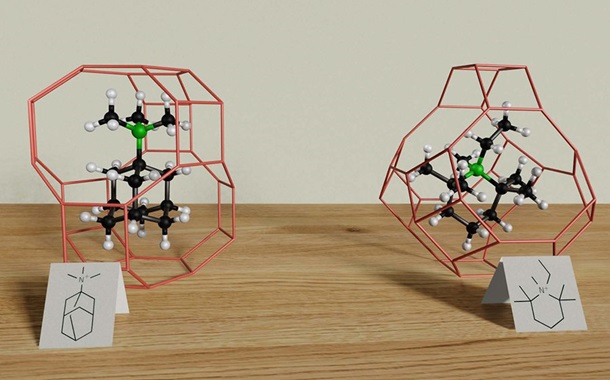A Digital Literacy Workshop Training Model for Child Parenting in a Fourth Industrial Era
Downloads
Doi:10.28991/HIJ-2022-03-03-05
Full Text:PDF
Downloads
Cappella, E., Aber, J. L., & Kim, H. Y. (2016). Teaching beyond Achievement Tests: Perspectives from Developmental and Education Science. Handbook of Research on Teaching, 5th Ed., 249–347. American Educational Research Association, Washington, United States. doi:10.3102/978-0-935302-48-6_4.
Tsekeris, C. (2019). Surviving and thriving in the Fourth Industrial Revolution: Digital skills for education and society. Homo Virtualis, 2(1), 34. doi:10.12681/homvir.20192.
Srivastava, S. C., & Shainesh, G. (2015). Bridging the service divide through digitally enabled service innovations: Evidence from Indian healthcare service providers. MIS Quarterly, 39(1), 245–267. doi:10.25300/MISQ/2015/39.1.11.
Colahan, E. (2022). Conducting a Liberatory Pedagogy: Empowering the Music Apprentice as a Knowledge Producer in the Classroom. College Music Symposium, 62(1), 22–52. doi:10.18177/sym.2022.62.sr.11559.
Narasimha, R. (2021). Rocket Science, Other Science: A Trajectory of Indian Science and Technology from the 20th to the 21st Century. Twenty K.R. Narayanan Orations: Essays by Eminent Persons on the Rapidly Transforming Indian Economy (1st Ed.), 270–286. Australian National University Press (ANU Press), Canberra, Australia. doi:10.2307/j.ctv1prsr3r.29.
Debies-Carl, J. S. (2021). Click "here” to post a comment: Legend discussion and transformation in online forums. Journal of Folklore Research, 58(2), 31–62. doi:10.2979/jfolkrese.58.2.02.
Eloksari, E.A. (2020). Indonesian internet users hit 196 million, still concentrated in Java: APJII survey. Available online: https://www.thejakartapost.com/news/2020/11/11/indonesian-internet-users-hit-196-million-still-concentrated-in-java-apjii-survey.html (accessed on March 2022).
Lapsomboonkamol, S., Songkram, N., Thamsuwan, P., & Songkram, N. (2022). The Mediating Effect of Knowledge Integration on the Relationship between Capability and Innovative Behaviour. Emerging Science Journal, 6, 92-107. doi: 10.28991/ESJ-2022-SIED-07.
Segura-Robles, A., Parra-González, M. E., López-Belmonte, J., & García-Alonso, M. (2022). Gamifying the Training of Future Teachers as a Successful Innovative Practice in the University Environment. Accessibility of Vulnerability Groups: from ICTS to Emotions (1st Ed.), 139–151, Dykinson, S.L., Madrid, Spain. doi:10.2307/j.ctv282jg7b.13.
Megele, C., & Malik, S. (2020). Social media and social work with children and young people and looked after children. Social Media and Social Work (1st Ed.) 61–92, Bristol University Press, Bristol, United Kingdom. doi:10.2307/j.ctv13qfvk3.8.
Mozumder, M. G. N. Social Conditions of the Innovative Use of Smartphone: A Qualitative Investigation among Young Users in Dhaka. The Bangladesh Development Studies, 42(4), 135–156.
The Jakarta Post. (2019). Indonesia has 171 million internet users: Study. Available online: https://www.thejakartapost.com/life/2019/05/18/indonesia-has-171-million-internet-users-study.html (accessed on March 2022).
Helsper, E. J., & Eynon, R. (2010). Digital natives: where is the evidence? British Educational Research Journal, 36(3), 503–520. doi:10.1080/01411920902989227.
Adenekan, S. (2021). Class and Poetry in the Digital Age. African Literature in the Digital Age, 47–62, Boyodell & Brewer, Woodbridge, United Kingdom. doi:10.2307/j.ctv136btwq.8.
Indonesian Internet Providers Association (APJII). (2018). Penetration and Behavior Profile of Indonesian Internet Users. Available online: https://diskominfo.purwakartakab.go.id/panel/assets/files/547e1e75b59e668bda451e92f9246d00.pdf (accessed on March 2022). (In Indonesia).
Benaziria, B. (2018). Pengembangkan Literasi Digital pada Warga Negara Muda dalam Pembelajaran PPKn melalui Model VCT. Jupiis: Jurnal Pendidikan Ilmu-Ilmu Sosial, 10(1), 11. doi:10.24114/jupiis.v10i1.8331. (In Indonesian).
Riyanto, A.D. (2018). Results of the 2018 Indonesian Internet User Behavior and Penetration Survey. Available online: https://andi.link/hasil-survei-penetrasi-dan-perilaku-pengguna-internet-indonesia-tahun-2018/ (accessed on March 2022).
Miller, D., Rabho, L. A., Awondo, P., de Vries, M., Duque, M., Garvey, P., Haapio-Kirk, L., Hawkins, C., Otaegui, A., Walton, S., & Wang, X. (2021). The heart of the smartphone. The Global Smartphone, 181–216, UCL Press. doi:10.2307/j.ctv1b0fvh1.16.
Marci, C. D. (2022). Tweens, Teens, and Tech. Rewired: Protecting your Brain in the digital Age, 77–99, Harvard University Press, Cambridge, United States. doi:10.2307/j.ctv2g7v16x.8.
Edward, E., Fayoumi, A., Shahgholian, A., & Hidayanto, A. (2022). Social Network Evolution: The Case of UK Companies before and After Brexit. Emerging Science Journal, 6(1), 1–13. doi:10.28991/ESJ-2022-06-01-01.
Bawden, D. (2001). Information and digital literacies: A review of concepts. Journal of Documentation, 57(2), 218–259. doi:10.1108/EUM0000000007083.
Gamliel, T., & Hazan, H. (2014). "Digital natives”: Honour and respect in computerized encounters between Israeli Jewish and Arab children and adult learners. British Educational Research Journal, 40(5), 886–905. doi:10.1002/berj.3119.
Bachri, & S, B. (2019). Ensuring Data Validity through Triangulation in Qualitative Research. Teknologi Pendidikan, 10(1), 46–62. (In Indonesian).
Kurnia, N., & Astuti, S. I. (2017). Peta Gerakan Literasi Digital Di Indonesia: Studi Tentang Pelaku, Ragam Kegiatan, Kelompok Sasaran Dan Mitra Yang Dilakukan Oleh Japelidi. Informasi, 47(2), 149. doi:10.21831/informasi.v47i2.16079. (In Indonesian).
Kurnia, N. D., Johan, R. C., & Rullyana, G. (2018). Hubungan Pemanfaatan Media Sosial Instagram Dengan Kemampuan Literasi Media di UPT Perpustakaan Itenas. Edulib, 8(1), 1-17. doi:10.17509/edulib.v8i1.10208. (In Indonesian).
Perkel, J. (2022). The Internet and Today's Children. Children in Mind, 75–89, Wits University Press, Johannesburg, South Africa. doi:10.18772/12022047472.10.
Dowdell, E. B., Burgess, A. W., & Flores, J. R. (2011). Original research: Online social networking patterns among adolescents, young adults, and sexual offenders. American Journal of Nursing, 111(7), 28–36. doi:10.1097/01.NAJ.0000399310.83160.73.
Seto, M. C., Wood, J. M., Babchishin, K. M., & Flynn, S. (2012). Online solicitation offenders are different from child pornography offenders and lower risk contact sexual offenders. Law and Human Behavior, 36(4), 320–330. doi:10.1037/h0093925.
Franzen, A. (2000). Does the Internet make us lonely?. European Sociological Review, 16(4), 427-438. doi: 10.1093/esr/16.4.427.
Suša Vugec, D., & Stjepič, A. M. (2022). Digital Literacy of Digital Natives. Technological Challenges. Management and Industrial Engineering. Springer, Cham. doi:10.1007/978-3-030-98040-5_3
Quintero, E. P. (2009). In a world of migration: Rethinking literacy, language, and learning texts. Journal of Educational Media, Memory, and Society, 1(1), 71–92. doi:10.3167/jemms.2009.010106.
Bacigalupe, G., & Parker, K. (2015). 3. Transnational connections through emerging technologies. Transitions, 61–79. New York University Press, New York, United States. doi:10.18574/nyu/9780814770948.003.0009.
Gilster, P. (1997). Digital Literacy. Wiley & Sons, Hoboken, United States.
Blake, R. J., & guillén, G. (2021). What Is the Right Technological Fit for L2 Learning?. Brave New Digital Classroom (3rd Ed.) Edition, 35–66, Georgetown University Press, Washington, Unites States. doi:10.2307/j.ctv1nc6rkf.7.
Jimoyiannis, A., & Gravani, M. (2011). Exploring adult digital literacy using learners' and educators' perceptions and experiences: The case of the second chance schools in Greece. Journal of Educational Technology & Society, 14(1), 217-227.
Masur, P. K., DiFranzo, D., & Bazarova, N. N. (2021). Behavioral contagion on social media: Effects of social norms, design interventions, and critical media literacy on self-disclosure. Plos one, 16(7), e0254670. doi:10.1371/journal.pone.0254670.
Silvana, H., & Darmawan, C. (2018). Pendidikan Literasi Digital Di Kalangan Usia Muda Di Kota Bandung. Pedagogia, 16(2), 146. doi:10.17509/pdgia.v16i2.11327. (In Indonesian).
Nasrullah, R., Aditya, W., Satya, T. I., Nento, M. N., Hanifah, N., Miftahussururi, M., & Akbari, Q. S. (2017). Digital Literacy Supporting Materials. Ministry of Education and Culture, Jakarta, Indonesia. Available online: http://repositori.kemdikbud.go.id/11635/ (accessed on April 2022). (In Indonesia).
Gay, L. R., Mills, G. E., & Airasian, P. (2006). Educational Research: Competencies for Analysis and Applications. Prentice Hall, Hoboken, United States.
- This work (including HTML and PDF Files) is licensed under a Creative Commons Attribution 4.0 International License.





















